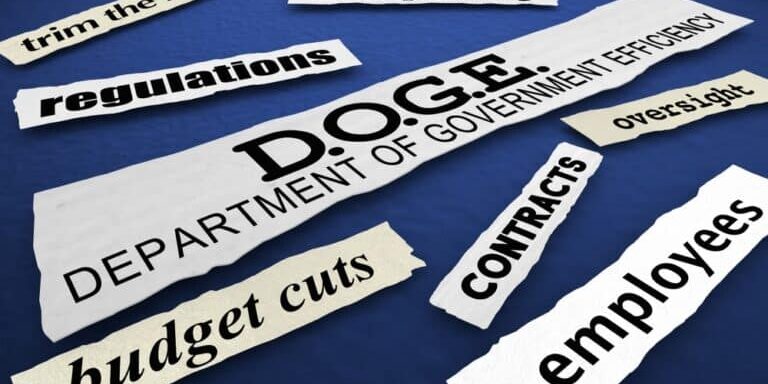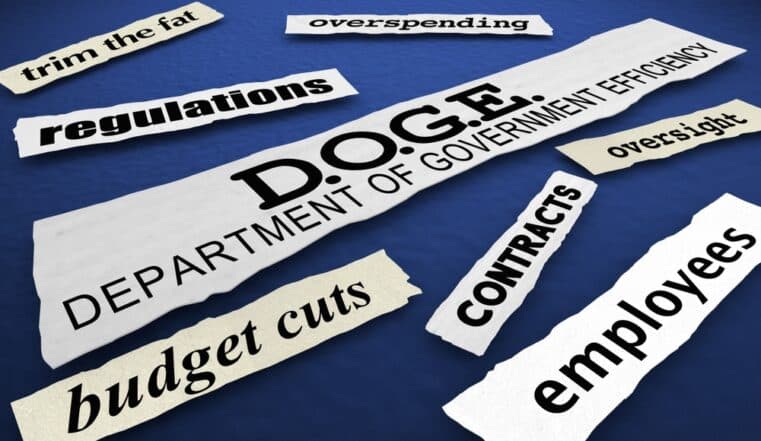
Elon’s Defeat: How the Swamp Crushed DOGE
The Musk Experiment: A Businessman Walks Into the Swamp
Elon Musk thought he could fix the federal government like he fixed the auto industry—cut waste, introduce accountability, and inject some productivity into the bureaucratic black hole. He was wrong. DOGE (Department of Government Efficiency) was supposed to root out fraud and reduce federal spending by $2 trillion. Instead, it sparked protests in all 50 states, attacks on Tesla dealerships, and a renewed commitment in Congress to spend even more.
Musk recently conceded defeat, posting on X that DOGE “has and will do great work to postpone the day of bankruptcy of America,” but acknowledged that only radical productivity growth—not spending cuts—can save the country. Translation: he hit the brick wall of government inertia and realized the swamp can’t be drained. It devours reformers and feeds on hope.
Bureaucracy Isn’t Broken—It’s Designed to Expand
Musk isn’t the first to believe you can run government like a business. But what works in the private sector—competition, efficiency, customer satisfaction—doesn’t exist in the public one. A business innovates or dies. A government agency underperforms and gets a bigger budget.
Private firms are disciplined by profits and punished by losses. Bureaucracies face neither. There's no mechanism for measuring efficiency, no customer walking away, and no shareholders demanding performance. Just rules, regulations, and a sprawling apparatus built to resist change at every level.
DOGE may have had the right ideas, but no amount of innovation can overcome a system where success isn’t rewarded and failure isn’t penalized.
The Numbers Don’t Lie—But Government Ignores Them Anyway
The cuts Musk proposed—eliminating bloat from USAID, the Department of Education, and other federal sinkholes—were instantly reversed by the “Big, Beautiful Bill,” a reconciliation package that re-pumped billions into the very programs DOGE tried to gut. Identifying waste became a PR stunt. The fraud discovered amounted to a rounding error compared to the monstrous federal budget.
DOGE’s efforts were swallowed whole by a Congress designed not to cut, but to spend. The incentives are built around pork-barrel politics: load legislation with perks for every district, and you buy votes—both in Congress and back home. It’s a mafia-style shakedown operation that looks like governance, but functions as legalized theft.
Why Bureaucracy Always Wins—and Why You’re Paying the Price
The problem isn’t a lack of will or genius. Musk had both. The problem is structural. Congress and the bureaucracies it funds have evolved into a parasitic alliance. Congressional staffers, federal agencies, civil servants—they all have one mission: survival through expansion. Any talk of “cuts” is a direct threat to their livelihood.
And term limits? A joke. All they do is compress the looting window. Instead of long-haul corruption, we get smash-and-grab policymaking. Faster spending. Shorter-term thinking. Bigger deficits. It’s like telling a bank robber he only has ten minutes—he’ll just move faster.
Government Isn’t the Solution. It’s the Addiction.
The deeper truth is this: the American state is no longer a service provider. It’s a dependency engine. Government money flows into every crevice of daily life—healthcare, education, mortgages, food, even private sector hiring. Cutting that pipeline would bring short-term pain and long-term benefit. But no one in D.C. wants the short-term pain. Not when reelection is the only metric that matters.
That’s why defense spending, entitlements, and bureaucratic salaries never get touched. No one wants to yank the IV line out of the arm of the addicted. And so the debt climbs, the bureaucracy grows, and reformers like Musk walk away empty-handed, wondering why competence isn’t enough.
You Can’t Fix This From the Inside—You Have to Exit the System
Musk's failure isn't surprising—it's instructive. It tells us what Bill Brocius has been warning for years: you can’t fix the system with the system. Real change doesn’t come from trimming government—it comes from bypassing it. That means moving your assets, your savings, and your financial future outside the reach of the state.
Take Control Before the Bureaucracy Comes for Your Bank Account
Don’t wait for Washington to solve itself—it won’t. The bureaucracy is hardwired to consume, inflate, and default. That means your bank account is next in line for “reform.”
Start now by downloading Bill Brocius’ free guide, “7 Steps to Protect Your Account from Bank Failure”.
Then join the Inner Circle newsletter for just $19.95/month to get Bill’s latest market insights, warnings, and portfolio strategies before the next failure hits the headlines.
You can’t audit your way out of a debt spiral. You can only escape it.
Prepare now—or prepare to be swallowed by it.
— Eric Blair, Dedollarize News











